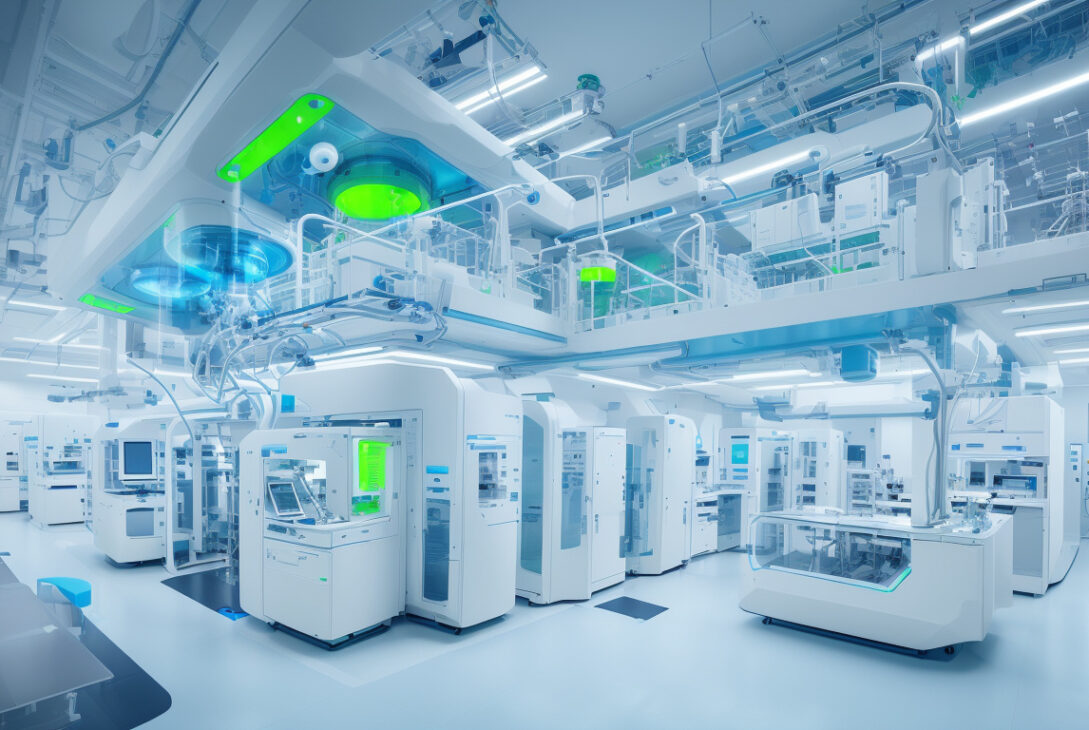PEGylation Proteins Technology Market Size to Reach USD 9.17 Billion by 2034
The global market for PEGylation proteins technology is poised for significant growth, with its size expected to nearly double from USD 4.89 billion in 2025 to approximately USD 9.17 billion by 2034. This expansion reflects a robust compound annual growth rate (CAGR) of 7.24% over the forecast period, driven by advances in drug delivery systems and an increasing demand for long-acting biologic therapies.
What is PEGylation Proteins Technology?
PEGylation proteins technology involves the covalent attachment of polyethylene glycol (PEG) polymers to therapeutic proteins, peptides, or small molecules. This modification enhances the pharmacokinetic properties of these molecules by improving their solubility, stability, and half-life, while reducing immunogenicity and proteolytic degradation. These enhancements enable more effective biopharmaceuticals, particularly in areas such as cancer therapy, enzyme replacement, and chronic disease management.
Market Overview and Key Drivers
The growing incidence of chronic diseases and oncology cases globally is increasing the reliance on PEGylated biologics that offer improved therapeutic efficacy and patient adherence. Long-acting formulations that enable less frequent dosing are especially attractive to patients and healthcare providers, lowering treatment burdens and clinic visit frequency.
Innovation in PEGylation, especially in site-specific techniques, allows for maintaining full activity of conjugated proteins, ensuring homogenous products and precision dosing. Furthermore, heightened investment in conjugation chemistry research and development is fostering continuous product pipeline expansion.
Regional Insights
-
North America: Dominating the global market with a 38% share in 2024, North America is home to a strong ecosystem of therapeutic protein developers, PEG reagent suppliers, and contract development and manufacturing organizations (CDMOs). The market here is projected to grow at a CAGR of 7.39%. The U.S. specifically accounted for USD 1.21 billion in 2024, with expectations to reach USD 2.49 billion by 2034 at a CAGR of 7.48%. This dominance stems from a conducive regulatory environment, including FDA’s guidance on complex biologics and PEGylated products, as well as strong clinical trial networks particularly in oncology and autoimmune indications.
-
Asia Pacific: This region is anticipated to register the fastest growth rate, driven by expanding biopharmaceutical hubs in China, India, South Korea, and Singapore. Enhanced regulatory frameworks from agencies like Japan’s PMDA and China’s NMPA are accelerating market entry for novel biologics. The high incidence of new cancer cases combined with growing biotechnological capabilities is fueling the adoption of PEGylation technologies.
Market Segmentation Highlights
-
By Protein Type: Monoclonal antibodies held the largest segment in 2024, accounting for 35% of the market share due to their widespread use in oncology and autoimmune therapies. Meanwhile, enzymes are forecasted to exhibit substantial growth rates owing to their therapeutic potential.
-
By PEGylation Technology: Linear PEGylation emerges as the leading technology, capturing 40% market share in 2024. Innovations in site-specific PEGylation and conjugation chemistry continue to improve the safety and efficacy profiles of PEGylated drugs.
-
By Therapeutic Application: Oncology led the market with 30% share in 2024, reflecting the heavy focus on cancer treatments utilizing PEGylated biologics. The autoimmune disorders segment is also showing promise, with expectations of notable CAGR growth.
-
By End-User: Pharmaceutical companies accounted for 45% of market revenue in 2024, leveraging PEGylation to enhance their biologic product portfolios. Contract research organizations (CROs) are predicted to be key growth drivers as outsourcing of PEGylation-related development increases.
The Role of Artificial Intelligence (AI)
AI is playing a transformative role in the PEGylation proteins technology market by optimizing research and development processes. AI-driven platforms help identify the ideal PEGylation sites on proteins and predict molecular stability, enhancing drug design accuracy. This technology also supports improved stratification in clinical trials, accelerating regulatory approvals and enhancing therapeutic safety.
Future Outlook
The PEGylation proteins technology market is set to experience sustained growth propelled by rising biopharmaceutical innovation, expanding clinical trials, and patient-centric treatment demands. The continued advancement of AI applications and regulatory support—especially in North America and Asia Pacific—will further elevate market growth.
As the demand for more effective, long-lasting biologics escalates, PEGylation stands as a crucial technology enabling higher drug efficacy and better patient outcomes, underscoring its expanding role in the global healthcare landscape.
Source: Market report updated on 21 August 2025; additional regulatory and market insights referenced from FDA and WHO publications.










